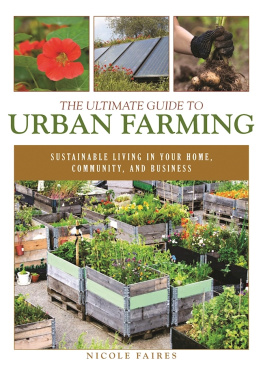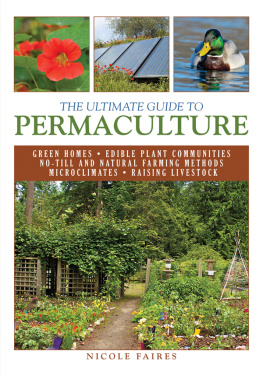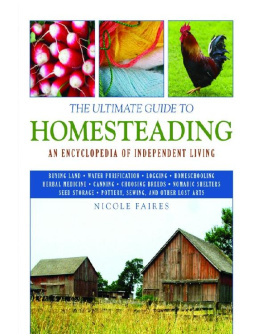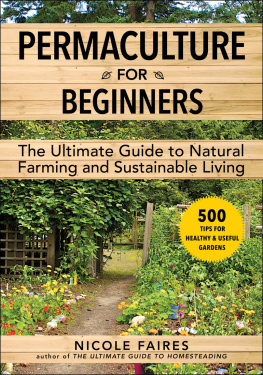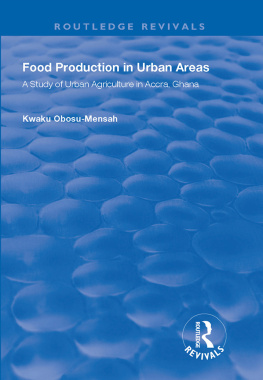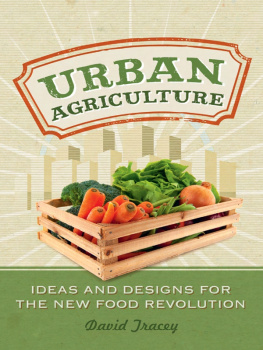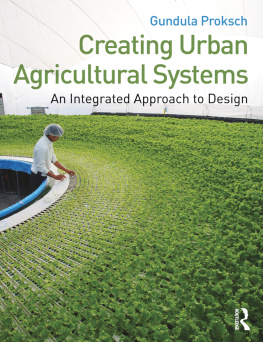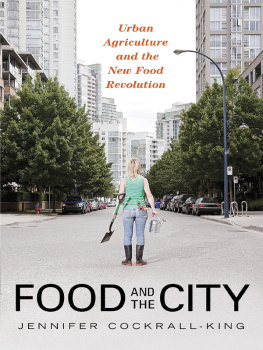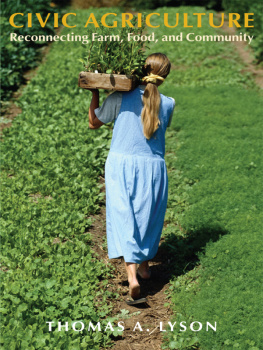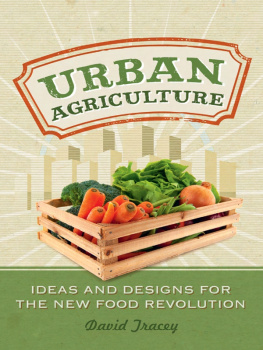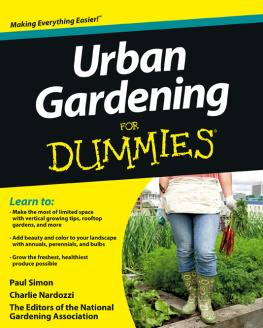Copyright 2016 by Nicole Faires
All rights reserved. No part of this book may be reproduced in any manner without the express written consent of the publisher, except in the case of brief excerpts in critical reviews or articles. All inquiries should be addressed to Skyhorse Publishing, 307 West 36th Street, 11th Floor, New York, NY 10018.
Skyhorse Publishing books may be purchased in bulk at special discounts for sales promotion, corporate gifts, fund-raising, or educational purposes. Special editions can also be created to specifications. For details, contact the Special Sales Department, Skyhorse Publishing, 307 West 36th Street, 11th Floor, New York, NY 10018 or .
Skyhorse and Skyhorse Publishing are registered trademarks of Skyhorse Publishing, Inc., a Delaware corporation.
Visit our website at www.skyhorsepublishing.com.
10 9 8 7 6 5 4 3 2 1
Library of Congress Cataloging-in-Publication Data is available on file.
Cover design by Rain Saukas
Cover photo credits: John Faires, Shutterstock, and iStockphoto
Interior Photograph credits: Nicole Faires, Jared Price-Morin, John Faires
ISBN: 978-1-5107-0392-6
Ebook ISBN: 978-1-5107-0393-3
Printed in China
For Ana, Autumn, Rainn, and Rhylan and especially for Jared.
Contents
Introduction
My first book was about homesteading, but not the modern-day hobby homesteading of yuppie housewives. My homesteading guide was about returning to the lost skills of the 1800s in case of a total social apocalypse. Zombie attack? No problem. Someone dropped you in the woods with just a pocketknife? Piece of cake.
As a child, I was an avid reader of childrens books like Little House on the Prairie and My Side of the Mountain . Who hasnt dreamed of living in the woods? I planned to buy some land and retire to my self-sufficient paradise. I learned the hard way that land is very expensive, and if you live in a rural area it is even more difficult. There just arent many jobs in the country and they dont pay well. Growing up in Montana, I quickly learned that there are generally two types of people in the woods: people living below the poverty line so that they can be free amongst nature, and rich folks who like the view from their million-dollar summer lake homes.
The children of country people dont usually stay in the country. Eighty percent of Americans and Canadians live in the city, because thats where the jobs are. In many ways, its less stressful to live in the city. The rents are high, the cities are crowded, and day-to-day necessities are pricier. However, the grocery stores are nearby, mass public transportation is convenient, and the schools are often superior. Therefore, as farmers retire, their kids arent taking over their jobs because it would mean forfeiting the comfort and security of the suburbs or city.
So, although I spent most of my childhood on a rural hobby farm in Montana, I have lived in numerous suburbs and cities during my adult life, including in Phoenix, Las Vegas, Nevada, Vancouver, and Washington (which is really a suburb of Portland). I also experienced small-town life: from the desert beauty of Apache Junction, Arizona and bleak Elko, Nevada to blue-collar Columbia Falls, Montana. Now I live on Vancouver Island in the elegant capital city of Victoria. Eventually, I would like to settle down in the country as Ive always dreamed, but that doesnt mean the city cant be a great place for farming. The city is an important part of the future of food; people have to eat, and thats where it happens most.
Each city has its own food culture and flair. Theres always some hole-in-the-wall little restaurant with the best eggs Benedict, or with pie thats better than your previous experience. Even though people have to eat, they love to eat local fare that has its own cultural identity.
We have access to some of the best food in the world, and yet we struggle with heart disease and obesity rates directly related to our diet of fast food or factory-made foods. Even the 20 percent who live in poverty-stricken rural areas have limited access to fresh food. This is due to the plight of small farms, which I researched for my book Food Confidential . Small farms are in danger not only for economic reasons, but also because corporations are in bed with the government to regulate them out of business. For example, industrial chicken producers work their hardest to make it impossible for small farmers to sell homegrown meat, and food conglomerates spend millions of dollars to lobby for more relaxed organic standards in order to make it easier for them to sell a high-profit product labelled organic .
Our issues with food will only get worse with climate change. The recent drought in California is just a sign of things to come. Urban agriculture is the solution to our problems. It is the best, cheapest, most reliable way to bring the freshest food to the most people. This book is about how to implement that solution.
There are tons of books available nowadays that call themselves urban homesteading or urban farming, but all they do is teach a fancier version of backyard gardening. There is a distinction between farming and gardening, and frankly, its a bit of an insult to farmers when you call a small vegetable garden a farm. This book is intended to show the difference between farming and gardening, and also how you can be a farmer, even in an apartment. This requires some hard work, but it is possible. It shows you how you can grow your own food in your suburban backyard as well as how you can become a commercial grower in any city.
Warning: Urban agriculture isnt legal in many places. Food Confidential talks a lot more about this and the struggles that backyard farmers should consider. To find out the legalities of urban farming in your area, you will need to learn more about your municipal bylaws and find your local food security organization.
Urban farming is not only a solution for our future as humans face climate change, corruption, and agricultural problems. It is also a solution for families who need access to fresh vegetables and fruit without the burden of shame and helplessness that food banks and care packages come with. Growing food provides a tremendous source of pride, self-reliance, and accomplishment. It brings communities together. It solves hunger and health problems. It can also provide income. There is no other vocation that can do all of this so holistically.
The Ultimate Guide to Urban Farming is a comprehensive system for creating and building urban farming as a major source of fresh foods in a city within a relatively short period of time. You can do it right now. Lets get started!
| Community & Business Planning |

Farming can be a family business. My daughter enjoyed gathering pill bugs.
DEFINING URBAN AGRICULTURE
All cities are mad: but the madness is gallant. All cities are beautiful, but the beauty is grim.
Christopher Morley
The Food Distribution System
The first grocery stores in North America were general stores and only rarely offered fresh food. Instead they sold things that people couldnt grow or make themselves and things that could be stored away for months at a time, such as canned goods, flour, and sugar. When you went to the general store, you brought your goods to trade or your little bit of money, walked directly up to the counter, and told the owner or clerk exactly what you wanted. He would tell you the price, you haggled over it, and then you handed over your beaver pelts.

